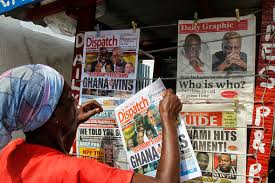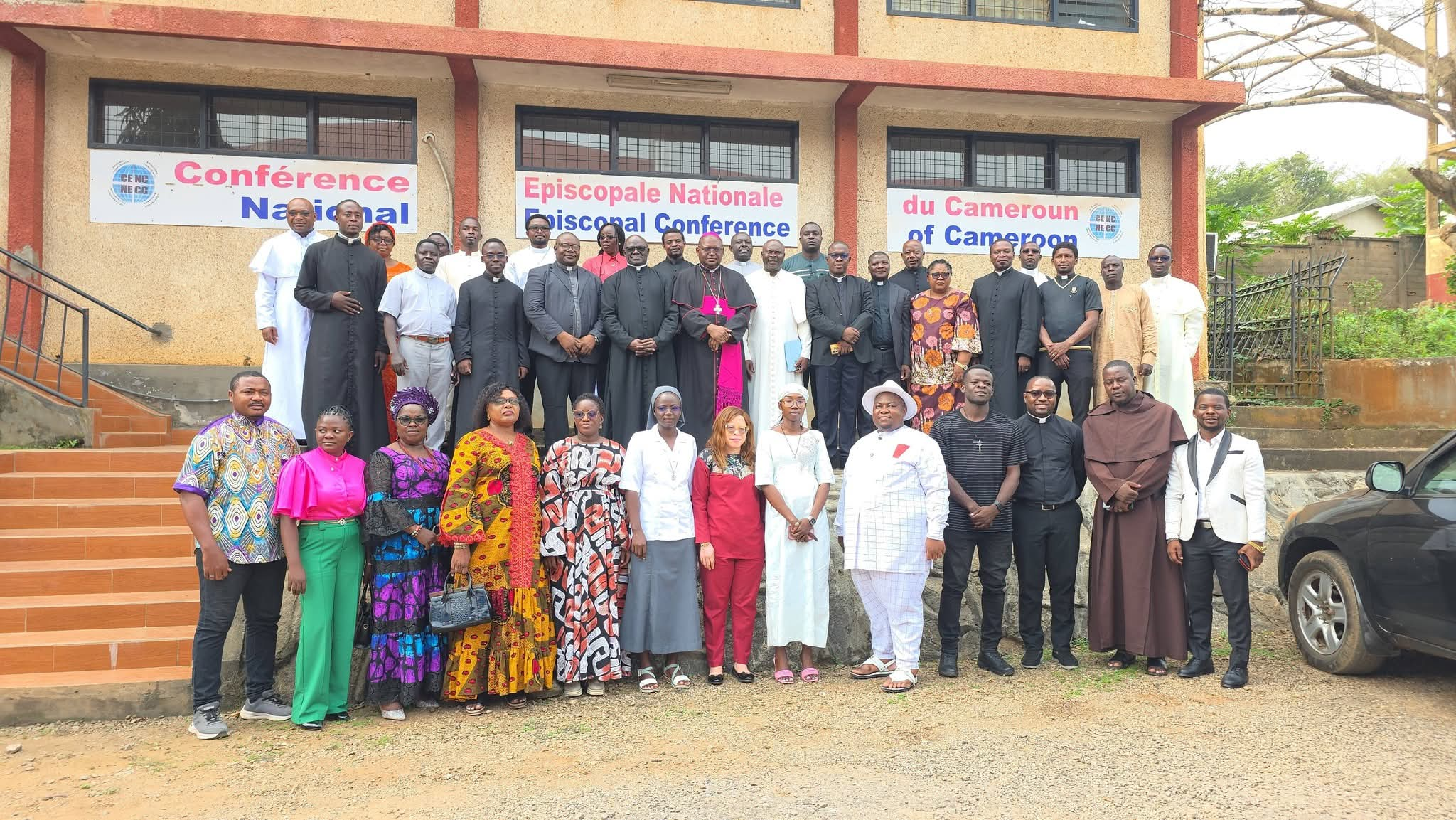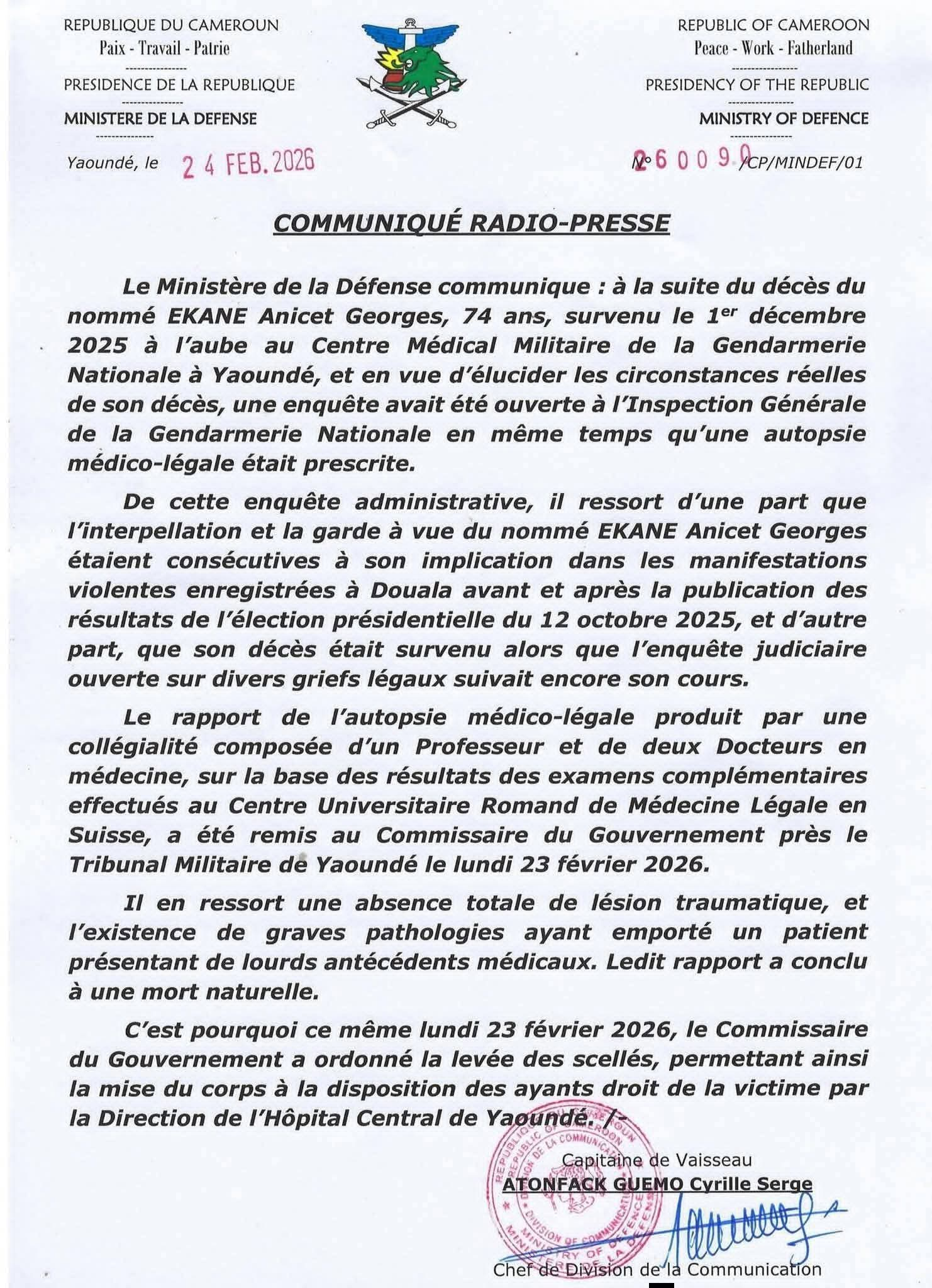President, Nana Addo Dankwa Akufo-Addo’s assertion that the strength of Ghana’s democracy is dependent on the credibility of its electoral process and respect for the will of the people is one of the trending stories in the Ghanaian press on Tuesday.The Ghanaian Times reports that President, Nana Addo Dankwa Akufo-Addo, has said strength of the country’s democracy is dependent on the credibility of its electoral process and respect for the will of the people.
He, has, therefore called for support for the Electoral Commission (EC) to discharge its mandate efficiently, especially in the conduct of elections to solidify the country’s self-rule.
“We, in Ghana, must continue to urge the EC to work to ensure that all stakeholders in the electoral process, that is the citizenry, civil society and political parties, do not have lingering questions about the legitimacy of an election,” he said.
President Akufo-Addo said this in a televised address to the nation on Friday to mark the 30th anniversary of Ghana’s Fourth Republic which started in 1992 with the coming into force of the 1992 Constitution.
Ghana was the first sub-Saharan African country to have gained independence from British colonial rule in 1957. Its constitutional rule under the first, second and third republics were curtailed by military interventions.
President Akufo-Addo attributed the longevity and peace of the Fourth Republic, to the respect for the principles of democratic accountability, human rights and the rule of law.
“We have every right to be proud of this, and the celebration of the 30th anniversary of the Fourth Republic should inspire us, even further, to hold on to this status,” he stated.
That development, according to the President, had “inspired the longest period of stable constitutional governance in our history, with a consensus emerging strongly that the democratic form of governance is preferable, and the benefits are showing”.
President Akufo-Addo indicated that, in spite of the political gains made, the country ought to remain focused and work assiduously to protect its democratic credentials.
“By all accounts, we have come a long way, and we should not take it for granted that everybody in Ghana has accepted democracy as the preferred mode of governance.
“There are those who would rather have authoritarian rule, because they claim our country is underdeveloped and democracy is cumbersome, and we need to get things done in a hurry.
“We still have some work to do to convince such people that we are all safer under democracies,” the President said.
The newspaper says that the economist, Dr Adu Owusu Sarkodie, has stated that a debt cancellation for Ghana will not affect the country’s ability to borrow from the international capital or Eurobond market in the near future.
According to him, international creditors were aware of the current global challenges facing developing countries.
Some financial observers have warned that a debt cancellation for Ghana could send negative signals to international creditors, indicating that the country was always unable to pay its debts.
The warning follows a report stating that Ghana was set to request a debt relief via the G20 Common Framework programme.
Speaking to Joy Business, Dr Sarkodie said debt forgiveness would demonstrate that creditors were ready to give the country a fresh start.
“Ghana owes about $13.1 billion on the Eurobond market alone. So if the debt release programme is successful, it means it will send a good signal to us.”
He argued that a debt cancellation will also improve the country’s credit rating since Ghana will no longer have unsustainable debts on its books.
“The reason why we are being downgraded is because we have unsustainable debt and can’t service those debts. Once they’re off, it gives us a fresh start. In any case, we have been downgraded because we owe, so if there is no debt, you will not suffer any downgrade.”
Dr Sarkodie also stated that the introduction of the Debt Release Programme by the International Monetary Fund (IMF) could cause the debt to GDP ratio to fall and help Ghana attain sustainability.
“If the Debt Release Programme comes, the Debt to GDP Ratio will fall to a sustainable level that we are all looking for. That is, about 55 per cent, and it will also give the government of Ghana some sustainability when it comes to the Debt to GDP Ratio,” he said.
The Graphic reports that member countries of the International Monetary Fund will pay more in terms of interest rate for loans contracted from the fund.
This is because the IMF has increased its lending rate on its Special Drawing Rights (SDR) from 0.89 per cent to 2.99 per cent, representing an increase of 2.1 percentage points.
The new rate which took effect on January 6, 2023, means that Ghana would have to pay more should the Bretton woods institution approve the US$ 3 billion programme.
Ghana is currently seeking an IMF-support programme to the tune of $3.0 billion that will span a period of about three years to revive its struggling economy.
This means the nation will pay an interest of 2.99% on the $3.0 billion over a period that will be determined by the terms and conditions of the Fund.
Already, the country is already seeking for debt cancellation via the G20 Common Framework programme, despite only poor nations eligible for it.
The newspaper says that Fund management company Databank will reopen its independent branches on January 10, 2022 – the first time since December 22, 2022, following a shutdown resulting from physical and verbal attacks on its staff by some of its clients.
The staff of the fund management company have been working remotely and engaging clients on digital platforms since the closure but the company in an e-mail and text message to its clients on Saturday, January 7, 2023, said it “will apply a phased approach to re-opening” its physical locations.
The re-opening will commence on January 10 with business resuming at its independent branches located in Accra, Cape Coast, Ho, Koforidua, Kumasi, Sunyani, Takoradi, Tamale and Tema.
This will be followed by the re-opening of Databank co-locations within GTBank and UBA branches located in Accra, Ashaiman, Kasoa, Tarkwa, Wa and KNUST.
The company in an email to its clients last December said it had been affected by the liquidity challenges that have rocked the fund management industry owing to the “macro-economic crisis” facing the country.
It said the crisis had resulted in the company’s inability to pay withdrawal requests and impacted its original two-week estimate for withdrawals.
In an interaction with clients of the firm on Zoom on December 28, 2022, the Chief Executive Officer of the Databank Group, Kojo Addae-Mensah said the firm’s fixed income investments were in government of Ghana bonds which had been affected by the Ghana Domestic Debt Exchange (GDX) programme which was announced on December 5.
He said the announcement of the GDX resulted in the shutdown of the secondary market which denied the firm the ability to sell the bonds to meet client redemption requests.
He added that the secondary market was still closed, so his outfit was engaging the government to in the interim provide liquidity to meet client redemption requests.
Mr Addae-Mensah disclosed that his outfit had engaged security personnel to provide security for its staff and clients at its branches but this was twisted by some media houses who reported it as intimidation of clients.




